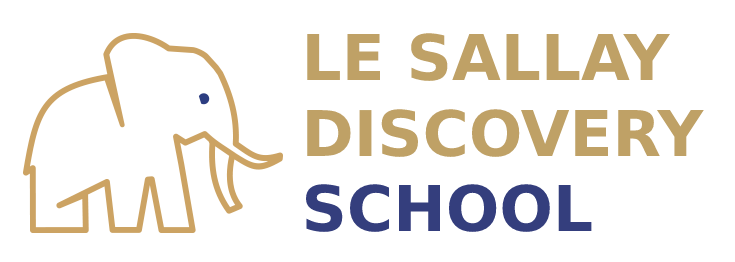Wole Soyinka Visits Le Sallay Academy
The Nobel Laureate, famed writer and activist Wole Soyinka visited Le Sallay Academy and gave a lecture to our students followed by a lively discussion on everything ranging from books to solitary confinement
31 March 2022

Photograph: Le Sallay Academy
In March 2022, we were honored to welcome Wole Soyinka, a Nigerian playwright, novelist, activist, and the 1986 Nobel Laureate. In advance of Mr. Soyinka's visit, the students read his play Death and the King's Horseman and discussed the themes of his literary works, including Yoruba traditions, colonial legacy and interactions between different cultures.
As a result, the conversation turned into an enlightening and free-flowing exchange of ideas. The castle's atmosphere seemed to fit the grandeur of the occasion, yet the free spirit of Mr. Soyinka matched that of the school making the conversation lively and informal. There were many questions asked ranging from what was solitary confinement like (no drawing on the walls, just a stick to write on a muddy floor) to what is the writer's all-time favorite movie (Fellini's La Strada).
Here is the rundown of the some of the most memorable answers
Years later, I found myself in prison confinement for political reasons. I wasn't permitted to have any writing materials. I was in total isolation and even the warden wasn't allowed to speak to me. After a couple of days, I started remembering my school experience and my old hatred of mathematics. As a writer, all I need is paper and a pen, but even the toilet paper was scarce. So I thought what can I occupy my mind with. And I remembered about mathematics. I started working, trying to discover the laws of permutation and combination. I used a stick to write on the floor of my cell. This is how I was able to survive long weeks of solitary confinement, by focusing my mind on mathematics. So never throw anything you have learned away.
My favourite book right now is a difficult one to answer. I find myself frequently on the road and stuck in traffic jams. So I have this traveling library where there is a stack of books on one side and a drink or two on the other. Often I read several books at once. One of those that I read recently and really liked is Elif Shafak The Island of Missing Trees. It's a remarkable, unusual book. It's both historical and also human. In fact, you can almost say that it echoes what is going on now between Russia and Ukraine. It speaks about Cyprus divided between Greeks and Turks and the ongoing attempts to annex the parts of Cyprus. It is a beautiful book and if you manage to get a hold of it, make sure to read it. It's very much worth it.
But, in all, there are so many books around, that if you find yourself reading a book that doesn't stimulate you and doesn't give you any pleasure, you can simply stop reading and move on to the next one. This is what I do.
As a result, the conversation turned into an enlightening and free-flowing exchange of ideas. The castle's atmosphere seemed to fit the grandeur of the occasion, yet the free spirit of Mr. Soyinka matched that of the school making the conversation lively and informal. There were many questions asked ranging from what was solitary confinement like (no drawing on the walls, just a stick to write on a muddy floor) to what is the writer's all-time favorite movie (Fellini's La Strada).
Here is the rundown of the some of the most memorable answers
- On unexpected uses of school knowledge
Years later, I found myself in prison confinement for political reasons. I wasn't permitted to have any writing materials. I was in total isolation and even the warden wasn't allowed to speak to me. After a couple of days, I started remembering my school experience and my old hatred of mathematics. As a writer, all I need is paper and a pen, but even the toilet paper was scarce. So I thought what can I occupy my mind with. And I remembered about mathematics. I started working, trying to discover the laws of permutation and combination. I used a stick to write on the floor of my cell. This is how I was able to survive long weeks of solitary confinement, by focusing my mind on mathematics. So never throw anything you have learned away.
- On reading and books
My favourite book right now is a difficult one to answer. I find myself frequently on the road and stuck in traffic jams. So I have this traveling library where there is a stack of books on one side and a drink or two on the other. Often I read several books at once. One of those that I read recently and really liked is Elif Shafak The Island of Missing Trees. It's a remarkable, unusual book. It's both historical and also human. In fact, you can almost say that it echoes what is going on now between Russia and Ukraine. It speaks about Cyprus divided between Greeks and Turks and the ongoing attempts to annex the parts of Cyprus. It is a beautiful book and if you manage to get a hold of it, make sure to read it. It's very much worth it.
But, in all, there are so many books around, that if you find yourself reading a book that doesn't stimulate you and doesn't give you any pleasure, you can simply stop reading and move on to the next one. This is what I do.
- On the craziest life experience

Is it true that I have escaped the Civil War on a motorcycle? Not, it's not. It wasn't the Civil War. I was about to be arrested by Sani Abacha, Nigeria's most violent and kleptocratic dictator. So I pretended to go hunting and instead emerged on the other side of the border, in Benin.
I first visited America during the times when the black revolution had just begun. There was a Black is Beatiful movement starting, So I went straight to Harlem. I wanted to see fellow progressives. I was hugely disappointed, but at the same time hugely stimulated by, how to describe it, the go-get-it attitude in America. I've never seen such aggressive motion, impulse, and sensibility.
But there was also racism. I experienced racism firsthand in a way that I had never experienced in England. There was a swimming pool at the hotel where I was staying. The owner of the hotel was a liberal, but still, by common consent, black people were not allowed to swim there. I was actually the first person to do it. I just woke up one morning and decided that enough is enough. After that, the owner called a staff meeting and told his staff that any paying customer can use a pool and if the staffers don't like it they are free to leave. It is amazing that with my temperament I got out of the deep South alive. This is how bad it was, racism was rampant. But generally, I liked that America had a different attitude. The British were so stiff. There was a sense of liveliness in America that I didn't find elsewhere.
- On first impressions of America
I first visited America during the times when the black revolution had just begun. There was a Black is Beatiful movement starting, So I went straight to Harlem. I wanted to see fellow progressives. I was hugely disappointed, but at the same time hugely stimulated by, how to describe it, the go-get-it attitude in America. I've never seen such aggressive motion, impulse, and sensibility.
But there was also racism. I experienced racism firsthand in a way that I had never experienced in England. There was a swimming pool at the hotel where I was staying. The owner of the hotel was a liberal, but still, by common consent, black people were not allowed to swim there. I was actually the first person to do it. I just woke up one morning and decided that enough is enough. After that, the owner called a staff meeting and told his staff that any paying customer can use a pool and if the staffers don't like it they are free to leave. It is amazing that with my temperament I got out of the deep South alive. This is how bad it was, racism was rampant. But generally, I liked that America had a different attitude. The British were so stiff. There was a sense of liveliness in America that I didn't find elsewhere.
- On receiving the Nobel Prize
- On education
There were many more stories told and questions asked, including views on Russia and Ukraine, the role of religion and favourite Yoruba traditions. You can watch a full video account of this fascinating exchange on our You Tube channel.

